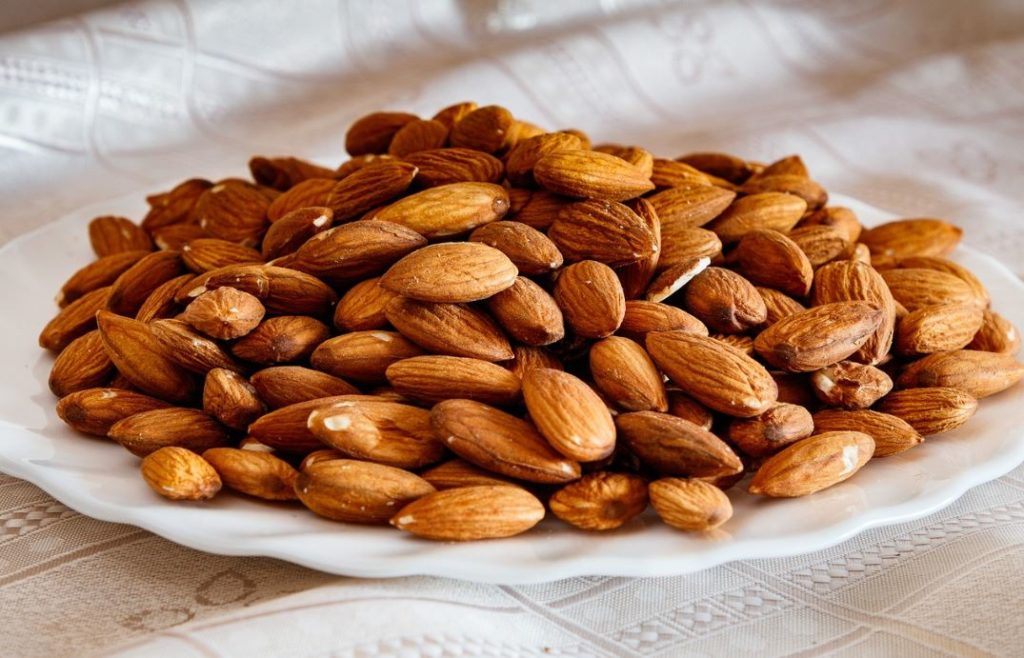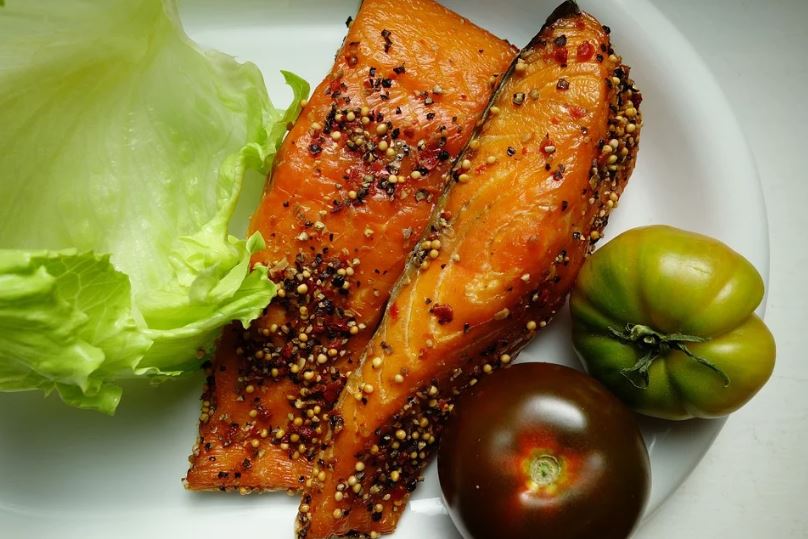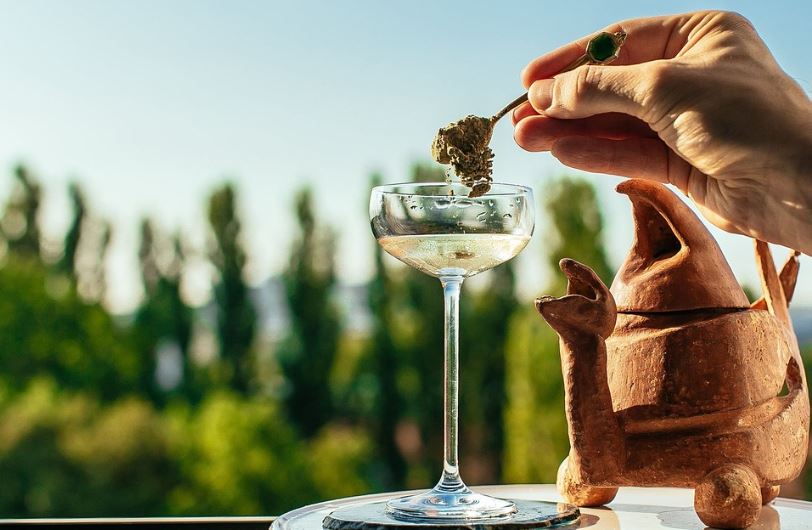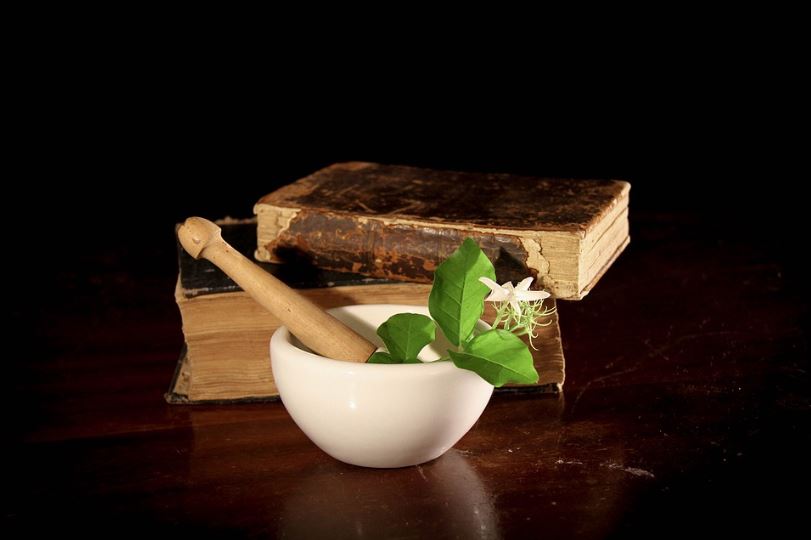Not many people know that certain foods can actually do this, which is why we want to share all our knowledge, and the latest research with you. Fortunately, what we consume in the way of food and drink, can help us moderate various elements of our sleep cycle – and this can empower us to fall asleep, and stay that way until morning [1].
So How Does Food & Drink Actually Help?
Well, substantial research shows that many chemicals, hormones, nutrients, enzymes and amino acids (protein constituents), work synergistically in order to regulate our sleep cycle, and give us a good night’s sleep [1]. – Something which is essential for everyone suffering from pain. The following list includes some of the elements which are extremely beneficial:
• Gamma-aminobutyric acid (GABA) (amino acid)
• L-ornithine (amino acid)
• Tryptophan (amino acid)
• Melatonin (hormone)
• Serotonin (hormone)
• Calcium (mineral)
• Magnesium (mineral)
• Potassium (mineral)
• Vitamin B6 (pyridoxine)
• Vitamin B12 (cobalamine)
• Other B vitamins
• Vitamin D
• Copper (mineral)
• Zinc (mineral)
• Histamine (found in some of the body’s cells, this chemical is responsible for generating many allergic symptoms)
• Acetylcholine (a neurotransmitter working as a messenger that sends signals from nerve cells to other cells, including neurons, muscle and gland cells)
• Antioxidants (substances which may protect our cells against free radical damage, which in excess, can generate a phenomenon referred to as oxidative stress. This plays a major role in the development of degenerative and long-term illness [1].
• L-ornithine (amino acid)
• Tryptophan (amino acid)
• Melatonin (hormone)
• Serotonin (hormone)
• Calcium (mineral)
• Magnesium (mineral)
• Potassium (mineral)
• Vitamin B6 (pyridoxine)
• Vitamin B12 (cobalamine)
• Other B vitamins
• Vitamin D
• Copper (mineral)
• Zinc (mineral)
• Histamine (found in some of the body’s cells, this chemical is responsible for generating many allergic symptoms)
• Acetylcholine (a neurotransmitter working as a messenger that sends signals from nerve cells to other cells, including neurons, muscle and gland cells)
• Antioxidants (substances which may protect our cells against free radical damage, which in excess, can generate a phenomenon referred to as oxidative stress. This plays a major role in the development of degenerative and long-term illness [1].
Food
Of note, while it has to be said that a substantial number of foods contain small amounts of these sleep-promoting compounds, only specific ones incorporate the necessary concentrations [1]. Taking into account nutritional profiles, scientific research and traditional knowledge; the following list comprises the most beneficial food and beverages, all of which can be easily obtained.
Almonds
Bursting with the hormone melatonin, this popular nut helps instigate regular sleeping patterns. Further, a 28 gm (1 oz) serving of whole almonds is packed with 76 mg of the mineral calcium, and 77 mg of the mineral magnesium, both of which can help encourage sleep and boost muscle relaxation. And on top of this, these super nuts are high in healthy fats, and low in saturated fats and sugar. Also, should you feel like an evening snack, almonds are a great choice. Note: be sure not to buy denatured nuts, that is to say, almonds that have been roasted, cut and sliced, as this degrades their nutritional value, and hence their ability to promote sleep [1].

Warm Milk
This has long been a highly popular remedy for having a great sleep. And while in the distant past, people did not realise why it worked, research has shown that it is due to the fact that it contains four key sleep-promoting constituents, namely: melatonin, vitamin D, calcium and tryptophan [1].
Interestingly: “the childhood association that many people have between a warm cup of milk and bedtime, may be more effective than tryptophan or melatonin in promoting sleep. Like a cup of tea, having a warm cup of milk before bed can be a relaxing nightly ritual” [1].
When it comes to snacking, low-fat milk is an excellent choice due to the fact it is low in calories, and bumper packed with nutrients [1]. Every cupful of 1% low-fat milk contains roughly:
• 110 calories
• 300 mg calcium
• 7.99 gm of protein
• 499 IU (international units) of vitamin A
• 101 IU of vitamin D [1].
• 300 mg calcium
• 7.99 gm of protein
• 499 IU (international units) of vitamin A
• 101 IU of vitamin D [1].

Walnuts
This is another favourite nut which houses several important sleep-promoting and regulating compounds [1]. These comprise: a good level of melatonin, as well as magnesium and serotonin. In fact, every 100 gm serving provides the following pro-sleep nutrients:
• 98 mg of calcium
• 158 mg of magnesium
• 441 mg of potassium
• 98 micrograms (µg) of vitamin B12 (cobalamin) [1].
• 158 mg of magnesium
• 441 mg of potassium
• 98 micrograms (µg) of vitamin B12 (cobalamin) [1].

Kiwifruit
A small research study indicated that: individuals who ate two kiwifruits an hour before to going to bed, over a four week period: “experienced improved total sleep time and sleep efficiency; and also took less time to fall asleep” [1]. This effect is probably due the fruit’s many sleep-promoting constituents, including:
• Melatonin
• Anthocyanins (red, purple & blue coloured pigments in fruit & vegetables, acting as antioxidants)
• Flavonoids (brightly coloured, powerful antioxidants with anti-inflammatory & immune system benefits)
• Carotenoids (yellow, red & orange pigments in fruit & vegetables working as antioxidants)
• Calcium
• Magnesium
• Potassium
• Vitamin B9 (folate) [1].
• Anthocyanins (red, purple & blue coloured pigments in fruit & vegetables, acting as antioxidants)
• Flavonoids (brightly coloured, powerful antioxidants with anti-inflammatory & immune system benefits)
• Carotenoids (yellow, red & orange pigments in fruit & vegetables working as antioxidants)
• Calcium
• Magnesium
• Potassium
• Vitamin B9 (folate) [1].
Chamomile Tea
Known for its de-stressing, calming properties, this king of the herbal teas, is becoming even more popular. Touted as a traditional remedy for insomnia, scientists believe that the flavonoid apigenin, is responsible for delivering its sleep-inducing benefits. Of note, apigenin appears to activate the neurotransmitter’s GABA receptors, a process which helps stimulate sleep. And while evidence that chamomile can ameliorate our quality of sleep, is only minimal, having a nice warm herbal cuppa can however, be a soothing ritual to help us psychologically prepare for bedtime [1].

Tart Cherries
The great news about cherries, is that they house a wealth of sleep-modulating compounds, namely: melatonin, serotonin, potassium and tryptophan. Moreover, scientists think that antioxidants in the form of polyphenols (micronutrients in certain plant-based foods), could be responsible for determining sleep regulation [1].
A study into the health benefits of cherries that was conducted in 2018, demonstrated: “a positive correlation between improved sleep and cherry consumption” [1]. Moreover, the research team concluded that the cherries’ anti-inflammatory properties could help to lessen pain after strenuous exercise [1].
On the snacking front, tart cherries make a first-class choice, due to their rich vitamin C, E, and fibre content [1].

Fatty Fish
Fatty fish is another food which has been shown to ameliorate sleep. This is due to its high levels of omega-3 fatty acid and vitamin D content, two star nutrients which help to modulate the happy hormone, serotonin. The latter plays a large role in establishing a fixed wake/sleep cycle [1].
Moreover, fatty fish are generally high in other sleep-promoting compounds [1]. For instance, a 85 gm (3 oz) wild Atlantic salmon fillet comprises:
• 10 mg of calcium
• 25 g of magnesium
• 170 mg of phosphorous
• 416 mg of potassium
• 0.54 mg of zinc
• 21 mcg of vitamin B9 (folate)
• 2.7 mcg of vitamin B-12 (cobalamin) [1].
• 25 g of magnesium
• 170 mg of phosphorous
• 416 mg of potassium
• 0.54 mg of zinc
• 21 mcg of vitamin B9 (folate)
• 2.7 mcg of vitamin B-12 (cobalamin) [1].
Research conducted in 2014, showed that: “participants who ate 300 gms of Atlantic salmon three times a week for six months, fell asleep more quickly and functioned better during the day than those who ate chicken, beef, or pork with the same nutritional value” [1]. The scientists came to the conclusion that: “these benefits were primarily due to an increase in vitamin D levels, as well as possible improvements in heart-rate regulation due to the omega-3 content” [1].

Barley Grass Powder
Very popular in smoothies, and the in-thing with celebrities; barley grass powder contains several first-class compounds, namely calcium, potassium, zinc, tryptophan and GABA. “According to a 2018 review, barley grass powder may promote sleep and help prevent a range of other conditions” [1].
Barley grass powder can easily be added to soups, salad dressings, scrambled eggs and smoothies [1].

Lettuce
Both lettuce and lettuce seed oil have been shown to boost a great night’s sleep, with some individuals claiming that it has a mild sedative-hypnotic effect. This is actually backed up by science, as: “researchers believe that most of its sedative effects are due to the plant’s n-butanol fraction, specifically in a compound called lactucin” [1].
Of note, research conducted in 2013, indicted that: “mice which received n-butanol fraction preparations experienced an increase in sleep duration and a decrease in the time it takes to fall asleep” [1]. Moreover, further research in 2017: “concluded that lettuce not only increased sleep duration in mice, it also protected cells against inflammation and damage resulting from stress during sleep disturbances” [1].

More Natural Remedies
Other than the aforementioned foods, various alternative and traditional remedies have proved helpful for enjoying a good night’s slumber. These include:
• Valerian
• St. John’s wort (a natural herbal remedy)
• Kava (a natural herbal remedy)
• Passionflower tea [1].
• St. John’s wort (a natural herbal remedy)
• Kava (a natural herbal remedy)
• Passionflower tea [1].

Contra-Indications
A word of caution: it is important to understand that oral supplements and remedies can have an adverse interaction with certain supplements or pharmaceuticals. Moreover, they could have an impact certain existing medical conditions. To that end, it is essential to discuss taking any new supplements or herbal/natural remedies with your doctor. That way you can ensure that there are no contra-indications.
Other Ways to Improve Your Sleep & Sleep Cycle
Harvard Medical School sleep expert, Dr. Lawrence Epstein, notes that: “when it comes to your ability to get a good night’s sleep, your diet may play a role. Go to bed hungry, and you’ll likely have trouble falling asleep. Eat a large meal, and afterwards you may feel like dozing off. Many foods can either interrupt your sleep or keep you from falling asleep” [2].
“Caffeine, spicy foods & alcohol make poor bedfellows” [2]
• Say no to rich & spicy food which can lead to heartburn & GERD
• Never have alcohol; or food or drinks which contain caffeine (a central nervous system stimulant), close to bedtime
• Substitute sugary food & white bread/pasta/rice for whole-grain, healthy alternatives
• Do not skip meals
• Keep well hydrated
• Get regular exercise
• Finish eating at least 3 hours prior to going to bed [1].
• Never have alcohol; or food or drinks which contain caffeine (a central nervous system stimulant), close to bedtime
• Substitute sugary food & white bread/pasta/rice for whole-grain, healthy alternatives
• Do not skip meals
• Keep well hydrated
• Get regular exercise
• Finish eating at least 3 hours prior to going to bed [1].
If you are lactose (milk sugar) intolerant (meaning that you do not have enough of the enzyme lactase in your intestines to break down lactose); and eat foods that contain the milk sugar, lactose, then you could well experience diarrhoea, bloating, or abdominal cramping, which is detrimental to good sleep [2].
Moreover, any drink or food which contains caffeine, can cause fragmented sleep, and make it hard to fall into a relaxing slumber. Further, in the case of alcohol, Dr. Epstein states that although: “it can make you fall asleep quicker; as it wears off, it causes a lot of awakening, and results in fewer restful stages of sleep, so you end up less refreshed. And if you do it long enough, it can cause permanent problems falling asleep” [2]. Therefore, it is extremely important to be mindful of the latter.
Dr Epstein advises that: “if you choose to have alcohol or products containing caffeine, consume them as long before bedtime as possible. Caffeine can stay in your system up to seven hours, so you should rethink that after-dinner espresso if you are having problems with sleep” [2].
An Up Close Look at the Offenders
Caffeine
This stimulant is found in: sodas, tea, decaffeinated coffee, hot chocolate, cocoa ice cream, cake and candy [2].
Lactose
This enzyme is present in: butter, cheese, milk, yogurt, ice cream, whipped cream, and foods which have milk added, for example, baked goods and cream-based soups [2].
Foods Which Might Cause Heartburn
These include: tomato sauce, peppermint, citrus, fried food, chocolate, alcohol, cola, coffee, onions and garlic [2].
References
[1]. Huizen, Jennifer (2019). Which foods can help you sleep? Medical News Today. https://www.medicalnewstoday.com/articles/324295
[2]. Harvard Health Publishing (2013). “Improve sleep by eating right.” https://www.health.harvard.edu/staying-healthy/improve-sleep-by-eating-right



